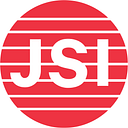Transforming Medication Management: How Digital Tools Reduced Wastage and Improved Patient Safety in Ethiopia
By Wondemagegnehu Gezahegn and Muluken Kassa
In 2021, Ethiopia’s Tulu Bolo General Hospital faced challenges in stocking essential medicines. Battling a high pharmaceutical wastage rate in its drug store and unable to perform a principle known as first expiry, first out (where products closest to expiry are prioritized for circulation to ensure efficient use of limited resources), the hospital not only experienced frequent errors in managing product batches, resulting in wastage, but increased its likelihood of using expired products in treating patients.
In 2022, the USAID-funded Digital Health Activity (DHA), undertaking efforts to digitize Ethiopia’s health sector, introduced a suite of interoperable electronic logistics management information systems, including the stock management system, Dagu 2; the Electronic Auditable Pharmaceutical Transaction and Services system; and the electronic pharmaceutical management information system. These tools, used in various divisions of health centers, enable clinicians to understand which products are available as they counsel patients. Concurrently pharmacists are better able to track intake and outflow of medical products. They feature alerts to push the use of near-expired products out first and remove expired products from shelves. Their interoperability layer allows autonomous communication between departments, saving staff time while ensuring patient access to high-quality essential medicines.
DHA provided health facilities computers pre-installed with logistics management information systems and trained staff on their use. A secured LAN was installed between dispensing units and the drug store to ensure these systems were securely connected and communicating. Further, DHA provided ongoing remote support to the hospital to troubleshoot problems, maintain systems, and address challenges staff experienced.
Over the next three years, the wastage rate decreased from 2.61% to 0.65%. Nigatu Hirko, the head of the pharmacy department at Tulu Bolo General Hospital, reflected on the transformation. “This management system revolutionized our operations. We’ve seen reduced medical product wastage, and enhanced efficiency across our health care team.”
Benefits of these efforts include:
- Availability of real-time data: Digital recording of supplies eliminated the need for manual entries, automating a time-consuming portion of pharmacists’ routine work while enabling accurate and real-time documentation of product use.
- Increased autonomy, increased efficiency: Easy access to medication quantity, pricing, and expiry dates enabled pharmacists to deliver high-quality care and manage inventory.
- Reduced patient waiting time: Streamlined processes and a newfound ability for pharmacies and clinicians to seamlessly communicate drastically cut patient waiting times.
- Enhanced patient safety: Alerts for near-expired medications optimized inventory management and significantly reduced wastage, while verification processes ensured patients received only non-expired medications, boosting safety and care quality.
DHA has implemented similar interventions in close to 1300 health facilities across all regions and city administrations of the country. As these digital health solutions advance, they promise to revolutionize health care delivery, ensuring better outcomes for all.
For more information on DHA, click here
